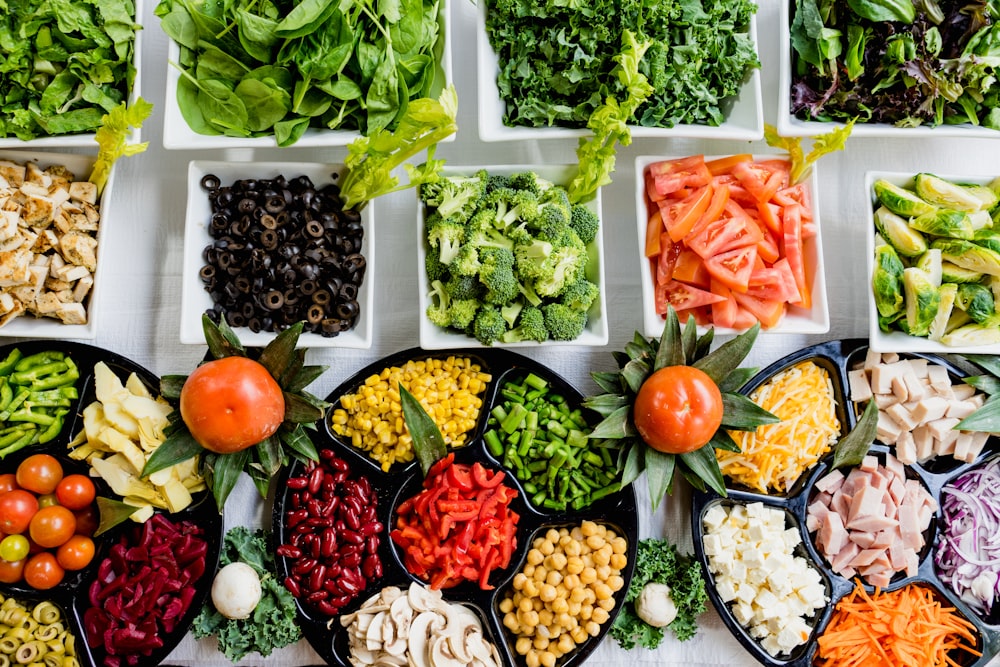Nourishing Body and Soul: Exploring Healthy Eating and Wholesome Recipes

In our fast-paced world, the importance of healthy eating cannot be overstated. The food choices we make impact not only our physical well-being but also our mental and emotional health. This blog post embarks on a journey through the realm of healthy eating, offering insights, tips, and a delightful collection of wholesome recipes to inspire a balanced and nourishing lifestyle.
I. The Foundations of Healthy Eating:
- Nutrient-Rich Foods: Discuss the significance of including nutrient-dense foods like fruits, vegetables, whole grains, lean proteins, and healthy fats in our diets.
- Balanced Diet: Explore the importance of striking a balance among macronutrients - carbohydrates, proteins, and fats - to support overall health.
II. The Benefits of Healthy Eating:
- Physical Well-being: Examine how a nutritious diet can boost energy levels, support weight management, and reduce the risk of chronic diseases.
- Mental and Emotional Health: Discuss the connection between diet and mental well-being, including reduced stress, improved mood, and cognitive function.
III. Mindful Eating:
- Eating with Awareness: Highlight the concept of mindful eating, which encourages savoring each bite, recognizing hunger and fullness cues, and reducing emotional eating.
- Avoiding Overeating: Discuss strategies to prevent overindulgence, such as smaller portion sizes and slowing down during meals.
IV. The Role of Hydration:
- Importance of Water: Explore the vital role of water in the body, from regulating temperature to supporting digestion and nutrient absorption.
- Hydrating Habits: Offer tips on maintaining proper hydration levels, including drinking water throughout the day and consuming water-rich foods.
V. Reading Food Labels:
- Decoding Nutrition Labels: Provide insights into how to interpret food labels, understanding serving sizes, ingredient lists, and key nutrients.
- Avoiding Hidden Sugars and Additives: Discuss the importance of identifying added sugars, preservatives, and artificial flavors in packaged foods.
VI. Healthy Eating on a Budget:
- Budget-Friendly Tips: Offer practical suggestions for eating healthily without breaking the bank, such as meal planning, buying in bulk, and choosing seasonal produce.
- Affordable Protein Sources: Explore cost-effective protein options, like beans, lentils, and eggs.
VII. Wholesome Recipes:
[Include a collection of nutritious and delicious recipes with detailed instructions and ingredient lists. Here are a few examples:]
- Breakfast Bliss: Overnight Oats with Fresh Berries and Almonds
- Veggie Delight: Roasted Vegetable and Quinoa Salad
- Hearty Comfort: Lentil and Vegetable Soup
- Superfood Smoothie: Green Kale and Banana Smoothie
- Sweet Treat: Avocado Chocolate Mousse
VIII. Meal Planning and Prep:
- Benefits of Meal Planning: Discuss how meal planning can save time, reduce food waste, and promote healthier eating habits.
- Batch Cooking: Explain the advantages of batch cooking and preparing meals in advance for busy days.
IX. Special Dietary Considerations:
- Vegetarian and Vegan Diets: Explore the benefits and challenges of plant-based diets and provide guidance on essential nutrients for vegetarians and vegans.
- Gluten-Free and Dairy-Free Eating: Offer tips for individuals with dietary restrictions, including gluten intolerance and lactose sensitivity.
X. Dining Out Mindfully:
- Making Smart Choices: Discuss strategies for making nutritious choices when dining at restaurants, including reading menus carefully and selecting healthier options.
- Portion Control: Highlight the importance of portion control when dining out, such as sharing dishes or requesting half-sized portions.
XI. Sustainable Eating:
- Eco-Friendly Choices: Examine the environmental impact of food choices and offer tips for sustainable eating, such as reducing food waste and choosing locally sourced ingredients.
- Seasonal Eating: Discuss the benefits of consuming seasonal foods, which are often fresher, more nutritious, and support local agriculture.
Conclusion:
Healthy eating is not just a dietary choice; it's a lifestyle that fosters vitality, longevity, and well-being. By embracing nutrient-rich foods, mindful eating practices, and a love for cooking, we can savor the countless benefits of a nourishing diet. As we journey through the world of healthy eating and explore delectable recipes, we embark on a path to a healthier, happier, and more vibrant life, one delicious bite at a time.









































